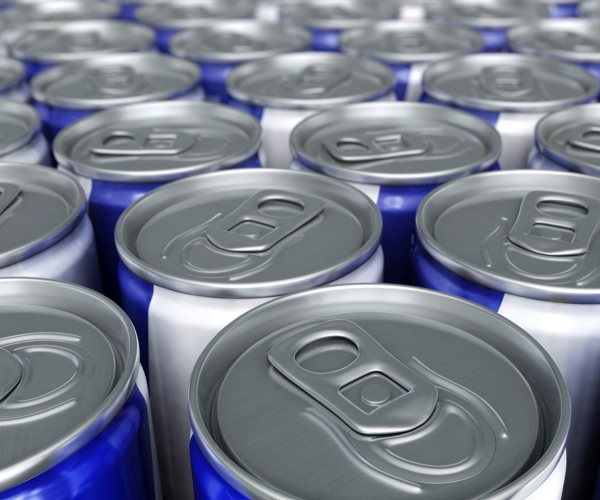

Sunday June 02, 2019
Here’s more evidence that energy drinks like Red Bull and Monster are not risk-free. Researchers find they may boost blood pressure and the odds of electrical problems in the heart.
And they say caffeine isn’t the culprit.
“Energy drinks are readily accessible and commonly consumed by a large number of teens and young adults, including college students. Understanding how these drinks affect the heart is extremely important,” said study co-author Kate O’Dell. She’s a professor of pharmacy at University of the Pacific in Stockton, Calif.
The findings are especially important for consumers who have other underlying health conditions, O’Dell and her colleagues said in a news release from the Journal of the American Heart Association. The journal published the study May 29.
The researchers recruited 34 healthy volunteers, ages 18-40. The participants drank 32 ounces of one of two caffeinated energy drinks or a placebo drink on three separate days.
The participants downed the drinks within one hour, but no faster than one 16-ounce bottle in a half hour.
The energy drinks had 304 to 320 milligrams of caffeine per 32 fluid ounces. Caffeine amounts of less than 400 milligrams are not expected to trigger any changes in the heart’s electrical activity, the researchers noted.
Exactly what might trigger the physical changes isn’t clear.
Besides caffeine, energy drinks often contain taurine (an amino acid), glucuronolactone (found in plants and connective tissues) and B vitamins. The placebo drink contained carbonated water, lime juice and cherry flavoring.
The blood pressure and electrical activity of the volunteers’ hearts were checked at the start of the study and every 30 minutes for four hours after consuming the drinks.
There was a 4- to 5-mm Hg increase in systolic and diastolic (top and bottom number) blood pressure in participants who consumed the energy drinks, compared to those who had the placebo, the researchers said. That’s considered statistically significant.
Also, those who consumed either type of energy drink had a QT interval that was 6 milliseconds or 7.7 milliseconds higher after four hours, compared to those who had the placebo.
The QT interval refers to the time it takes ventricles (lower chambers) in the heart to prepare generating a beat again. If the interval is too short or too long, it can cause a potentially life-threatening heart rhythm problem.
“We found an association between consuming energy drinks and changes in QT intervals and blood pressure that cannot be attributed to caffeine,” said lead author Sachin Shah, a professor of pharmacy practice at the University of the Pacific.
“We urgently need to investigate the particular ingredient or combination of ingredients in different types of energy drinks that might explain the findings seen in our clinical trial,” Shah said.
These results confirm previous findings, according to the researchers. They also suggest that QT interval changes after consuming 32 ounces of an energy drink generally last more than four hours, rather than being short-lasting.
It’s believed that up to 30% of U.S. teens regularly consume energy drinks. The researchers pointed out they’ve been linked to emergency room visits and death.
Doctors should warn patients about potential problems, the authors said.
“Health care professionals should advise certain patient populations, for example, people with underlying congenital or acquired long QT syndrome or high blood pressure, to limit or monitor their consumption,” Shah said.
Source: Newsmax






Energy drinks have been enjoyed by millions of people around the world for more than 30 years and are recognized by government food safety agencies worldwide, including the U.S. Food and Drug Administration, Health Canada, and the European Food Safety Authority, as safe for consumption. This includes caffeine as well as other ingredients commonly found in mainstream energy drinks. In fact, many of the ingredients in energy drinks, such as B vitamins and taurine, are found naturally in many foods.
America’s leading energy drink manufacturers voluntarily go beyond all federal requirements when it comes to responsible labeling and marketing practices, including displaying total caffeine content from all sources and advisory statements that the drinks are not recommended for children, pregnant or nursing women, or those sensitive to caffeine.